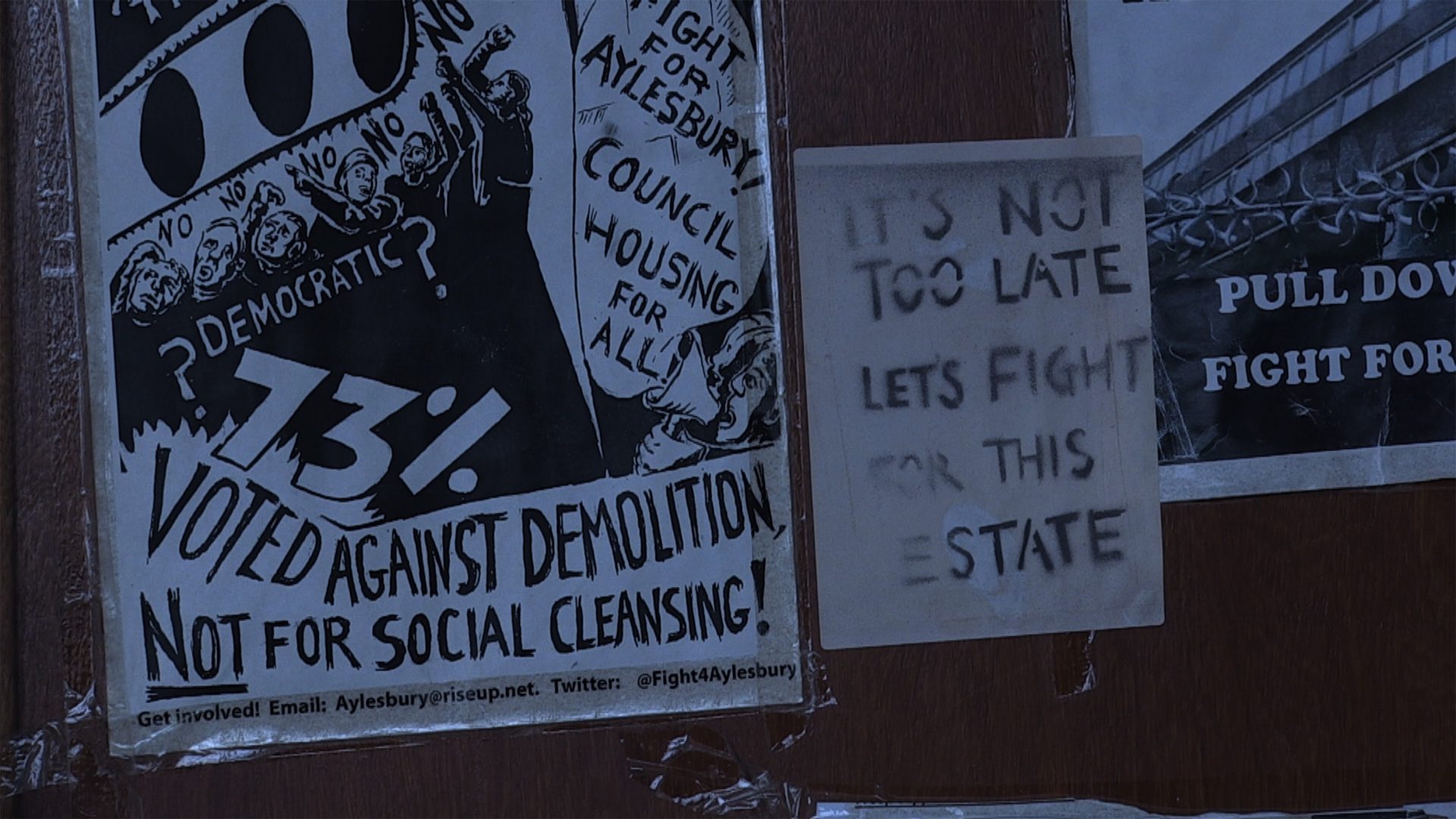There was, and rightly still is, a tremendous outcry surrounding the Grenfell tragedy, as concerns and questions regarding the avoidable loss of life and the ongoing ignorance of intervention continue to accompany unsatisfying explanations and assurances that similar incidents will never happen again. A prominent issue is that many know they need to be outraged – but they don’t comprehend just why.
Melissa Herman’s documentary We’re Still Here spans four years of the lives of families, key workers and vulnerable people attempting to combat the difficulties of social housing. More, though, it offers a concise, practical and methodical understanding of gentrification and social cleansing of London’s boroughs. Over the course of these four years, Herman compiles and records the struggles and campaigns renters and activists face in trying to secure social housing rights, keep their homes and fend off the back-handed deals between London City councils and property developers.
Though rooted in London, We’re Still Here ripples with an undercurrent of the housing crisis across the UK as many renters are being pressed into leaving their homes, or facing eviction, under the guise of ‘improvements’. Herman’s film dedicates time to sharing the resident’s stories and experiences, but takes most matters in broad-strokes. We’re Still Here is less a discussion surrounding the housing crisis and more of a focal point on the human aspect, narrowing in on the cost of human experience and life and offering digestible explanations as the residents come to terms with concepts of gentrification.
Through weaving multiple city districts and different experiences together, Herman maintains a commonality, as people work against paperwork, suited council workers and rich property developers. Visually, much of the film strives for a duality, demonstrating how a single frame can capture both the UK’s abject poverty and gross affluence. Greed is often placed in shot next to charity or humility as peaceful rallies or students clash against garish banks, posh high-rises, or decadent parties for London’s property developers.
Difficult as it may be to detach from such a ferociously aggravating subject matter, as a piece of cinema, We’re Still Here is as raw in structure as it is emotion. It isn’t the sleekest or most well-constructed piece, with instances of choppy editing and a reluctance to cut dead-air or trim scenes. There’s a sense of padding, and while gaining a richer insight into the people behind the protests, one or two interviews could have been left to the side to enrich other, more prominent stories.
Narration makes up the transitional points or elements which require explanation, with most of the film being made up of interviews or off-the-cuff remarks from Herman’s voiceover. This makes for a more intimate film, garnering colour from the voices rather than focusing solely on the dilapidated and greying stones of the London tower blocks.
At times, the documentary has the impression of being the precursor to a six-part televised series. As such, much of We’re Still Here stokes a hunger in audiences for more answers and more time with this diverse and fruitful court of people. Herman taps into the human element of social cleansing and gentrification, and while they leave behind the complexities, the fundamentals are communicated engagingly and concisely, which encourages further discourse as it finally treats so many – who felt voiceless – as heard.
